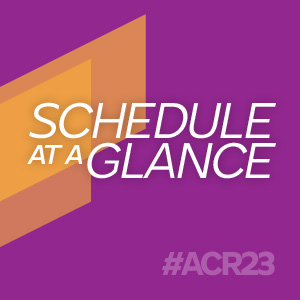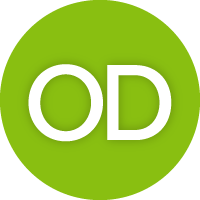Poster Session C
Epidemiology, health policy and outcomes
Session: (1796–1826) Epidemiology & Public Health Poster III
1796: Safety & ImmUnogenicity of COVID-19 VaCcines in SystEmic immunE Mediated Inflammatory Diseases (SUCCEED)
Tuesday, November 14, 2023
9:00 AM - 11:00 AM PT
Location: Poster Hall
- VC
Vinod Chandran, MD, PhD, MBBS, DM, FRCPC
University of Toronto
Toronto, ON, CanadaDisclosure information not submitted.
Abstract Poster Presenter(s)
Olga Tsyruk1, Vinod Chandran2, Carol Hitchon3, J. Antonio Avina-Zubieta4, Ines Colmegna5, Paul R. Fortin6, Maggie Larche7, Gilles Boire8, Luck Lukusa1, Dawn Bowish7, Gilaad G Kaplan9, Daniel Pereira10, Roaya Dayam11, Jennifer LF Lee1, Elizabeth Turnbull1, Valeria Valerio12, Laurie Proulx13, Janet Gunderson14, Anne-Claude Gingras11 and Sasha Bernatsky12, 1RI-MUHC, Montreal, QC, Canada, 2Schroeder Arthritis Institute, Krembil Research Institute, University Health Network and Division of Rheumatology, Department of Medicine, University of Toronto, Toronto, ON, Canada, 3University of Manitoba, Winnipeg, MB, Canada, 4Arthritis Research Canada, Vancouver, BC, Canada, 5The Research Institute of the McGill University Health Centre, Montréal, QC, Canada, 6Centre ARThrite - CHU de Québec - Université Laval, Quebec City, QC, Canada, 7McMaster University, Hamilton, ON, Canada, 8Université de Sherbrooke, Sherbrooke, QC, Canada, 9University of Calgary, Calgary, AB, Canada, 10University Health Network, Toronto, ON, Canada, 11Lunenfeld-Tanenbaum Research Institute at Mount Sinai Hospital Sinai Health, Toronto, ON, Canada, 12Research Institute of the McGill University Health Centre, Montreal, QC, Canada, 13Canadian Arthritis Patient Alliance, Ottawa, ON, Canada, 14Canadian Arthritis Patient Alliance, Saskatoon, SK, Canada
Background/Purpose: The Canadian government's COVID Immunity Task Force funded SUCCEED to study COVID vaccination responses in immune-mediated inflammatory disease(IMID). We describe how drugs, clinical factors, and vaccine history influence serological response to vaccination, summarize safety, and describe breakthrough infections.
Methods: From Vancouver, Calgary, Winnipeg, Montreal, Quebec City, Sherbrooke, Toronto, and Hamilton, data and dried blood spots/sera post-COVID vaccination were collected from adults with rheumatoid arthritis, inflammatory bowel disease, SLE, ankylosing spondylitis/spondyloarthritis and psoriasis/psoriatic arthritis, with the first sample at enrolment and then 3, 6, and 12 months after latest vaccine dose. We evaluated anti-spike(S) trimer and anti-receptor-binding domain(RBD) IgG (indicating successful serologic response to vaccine) and anti-nucleocapsid (N) IgG (indicating recent infection, cross-referenced with self-report). Multivariate generalized estimating equation regressions (accounting for repeated measures) were used to evaluate serologic response, based on log-transformed anti-RBD titres.
Results: Baseline characteristics of 1556 participants are shown in Table 1. Table 2 shows crude and adjusted odds ratios(OR). Positive associations for anti-RBD/anti-S serologic responses were seenwithfemale sex, number of vaccine doses and infections in 2021-2022. Negative associations were seen with prednisone, anti-TNF agents and rituximab. Diminution of response was clearly seen even for daily prednisone doses of 1-10 mg (adjusted OR 0.73 95%CI 0.58-0.91) and 11-20 mg (aOR 0.62 95%CI 0.43-0.90). Methotrexate and other immunosuppressants were associated with reduced response only in univariate analyses. Time since last vaccination was negatively associated with serologic response; rate of decrease was similar during the period 15-120 days since last vaccine (OR 0.75 95%CI 0.64,0.87) and 121-210 days post-last vaccine (OR 0.79 95%CI 0.67,0.92) but worse after >210 days (OR 0.53 95%CI 0.43,0.66).
Self-reported post-vaccine adverse events leading to emergency department(ED) visits or hospitalizations occurred in only 1.5% of participants. Bell's Palsy represented one ED visit, with no confirmed Guillain-Barre or transverse myelitis in our preliminary analyses. Over 2021-2022, anti-N positivity (indicating recent infection) was present in 9.8% of samples; most (85%) were associated with a self-reported infection. Anti-N positivity was lowest in the summer of 2021 and highest post-Omicron (fall 2022).
Conclusion: Past infections and number of COVID-19 vaccine doses were positively associated with serologic response. Time since vaccination, particularly >210 days, was negatively associated with response. Anti-TNF agents, rituximab, and prednisone were associated with less immunogenicity. Few vaccine-related adverse events led to ED or hospitalization. Ours is the first assessment of drugs, vaccine history, and other factors on serologic COVID vaccine response in a large, pan-Canadian IMID sample. These findings may help patients, clinicians, and other stakeholders make personalized decisions about vaccination in 2023-2024 and beyond.
.jpg)
.jpg)
O. Tsyruk: None; V. Chandran: AbbVie, 1, 5, 6, Amgen, 1, 5, 6, AstraZeneca, 3, Bristol-Myers Squibb (BMS), 1, 6, Eli Lilly, 1, 5, 6, Janssen, 1, 6, Novartis, 1, 1, 6, UCB, 1, 2; C. Hitchon: Astra Zeneca, 1, Pfizer, 5; J. Avina-Zubieta: None; I. Colmegna: None; P. Fortin: AbbVie, 1, AstraZeneca, 1, 6, GlaxoSmithKlein(GSK), 1, 6, Roche-Genentech, 1; M. Larche: None; G. Boire: Eli Lilly, 1, Janssen, 6, Organon, 1, Orimed Pharma, 1, 6, Otsuka, 1, Pfizer, 1, 5, Sandoz, 1, Teva, 1, Viatris, 1, 6; L. Lukusa: None; D. Bowish: AstraZeneca, 2; G. Kaplan: AbbVie, 6, Ferring, 5, Janssen, 6, Pfizer, 6; D. Pereira: None; R. Dayam: None; J. Lee: None; E. Turnbull: None; V. Valerio: None; L. Proulx: AbbVie/Abbott, 5, ESDC, 5, IMC, 5; J. Gunderson: None; A. Gingras: ChairCIHR Institute of Genetics Advisory Board, and SAB of the National Research Council of Canada Human Health Therapeutics Board, 4, Participates in the COVID-19 Immunity Task Force (CITF) Immune Science and Testing working party, 2, Research funds from a research contract with Providence Therapeutics Holdings, Inc for other projects, 5; S. Bernatsky: None.
Background/Purpose: The Canadian government's COVID Immunity Task Force funded SUCCEED to study COVID vaccination responses in immune-mediated inflammatory disease(IMID). We describe how drugs, clinical factors, and vaccine history influence serological response to vaccination, summarize safety, and describe breakthrough infections.
Methods: From Vancouver, Calgary, Winnipeg, Montreal, Quebec City, Sherbrooke, Toronto, and Hamilton, data and dried blood spots/sera post-COVID vaccination were collected from adults with rheumatoid arthritis, inflammatory bowel disease, SLE, ankylosing spondylitis/spondyloarthritis and psoriasis/psoriatic arthritis, with the first sample at enrolment and then 3, 6, and 12 months after latest vaccine dose. We evaluated anti-spike(S) trimer and anti-receptor-binding domain(RBD) IgG (indicating successful serologic response to vaccine) and anti-nucleocapsid (N) IgG (indicating recent infection, cross-referenced with self-report). Multivariate generalized estimating equation regressions (accounting for repeated measures) were used to evaluate serologic response, based on log-transformed anti-RBD titres.
Results: Baseline characteristics of 1556 participants are shown in Table 1. Table 2 shows crude and adjusted odds ratios(OR). Positive associations for anti-RBD/anti-S serologic responses were seenwithfemale sex, number of vaccine doses and infections in 2021-2022. Negative associations were seen with prednisone, anti-TNF agents and rituximab. Diminution of response was clearly seen even for daily prednisone doses of 1-10 mg (adjusted OR 0.73 95%CI 0.58-0.91) and 11-20 mg (aOR 0.62 95%CI 0.43-0.90). Methotrexate and other immunosuppressants were associated with reduced response only in univariate analyses. Time since last vaccination was negatively associated with serologic response; rate of decrease was similar during the period 15-120 days since last vaccine (OR 0.75 95%CI 0.64,0.87) and 121-210 days post-last vaccine (OR 0.79 95%CI 0.67,0.92) but worse after >210 days (OR 0.53 95%CI 0.43,0.66).
Self-reported post-vaccine adverse events leading to emergency department(ED) visits or hospitalizations occurred in only 1.5% of participants. Bell's Palsy represented one ED visit, with no confirmed Guillain-Barre or transverse myelitis in our preliminary analyses. Over 2021-2022, anti-N positivity (indicating recent infection) was present in 9.8% of samples; most (85%) were associated with a self-reported infection. Anti-N positivity was lowest in the summer of 2021 and highest post-Omicron (fall 2022).
Conclusion: Past infections and number of COVID-19 vaccine doses were positively associated with serologic response. Time since vaccination, particularly >210 days, was negatively associated with response. Anti-TNF agents, rituximab, and prednisone were associated with less immunogenicity. Few vaccine-related adverse events led to ED or hospitalization. Ours is the first assessment of drugs, vaccine history, and other factors on serologic COVID vaccine response in a large, pan-Canadian IMID sample. These findings may help patients, clinicians, and other stakeholders make personalized decisions about vaccination in 2023-2024 and beyond.
.jpg)
Table 1. Baseline characteristics
.jpg)
Table 2: Odds ratios (OR) and 95% confidence intervals for the effects of demographics, clinical exposures, and vaccination history on anti-RBD serology
O. Tsyruk: None; V. Chandran: AbbVie, 1, 5, 6, Amgen, 1, 5, 6, AstraZeneca, 3, Bristol-Myers Squibb (BMS), 1, 6, Eli Lilly, 1, 5, 6, Janssen, 1, 6, Novartis, 1, 1, 6, UCB, 1, 2; C. Hitchon: Astra Zeneca, 1, Pfizer, 5; J. Avina-Zubieta: None; I. Colmegna: None; P. Fortin: AbbVie, 1, AstraZeneca, 1, 6, GlaxoSmithKlein(GSK), 1, 6, Roche-Genentech, 1; M. Larche: None; G. Boire: Eli Lilly, 1, Janssen, 6, Organon, 1, Orimed Pharma, 1, 6, Otsuka, 1, Pfizer, 1, 5, Sandoz, 1, Teva, 1, Viatris, 1, 6; L. Lukusa: None; D. Bowish: AstraZeneca, 2; G. Kaplan: AbbVie, 6, Ferring, 5, Janssen, 6, Pfizer, 6; D. Pereira: None; R. Dayam: None; J. Lee: None; E. Turnbull: None; V. Valerio: None; L. Proulx: AbbVie/Abbott, 5, ESDC, 5, IMC, 5; J. Gunderson: None; A. Gingras: ChairCIHR Institute of Genetics Advisory Board, and SAB of the National Research Council of Canada Human Health Therapeutics Board, 4, Participates in the COVID-19 Immunity Task Force (CITF) Immune Science and Testing working party, 2, Research funds from a research contract with Providence Therapeutics Holdings, Inc for other projects, 5; S. Bernatsky: None.



